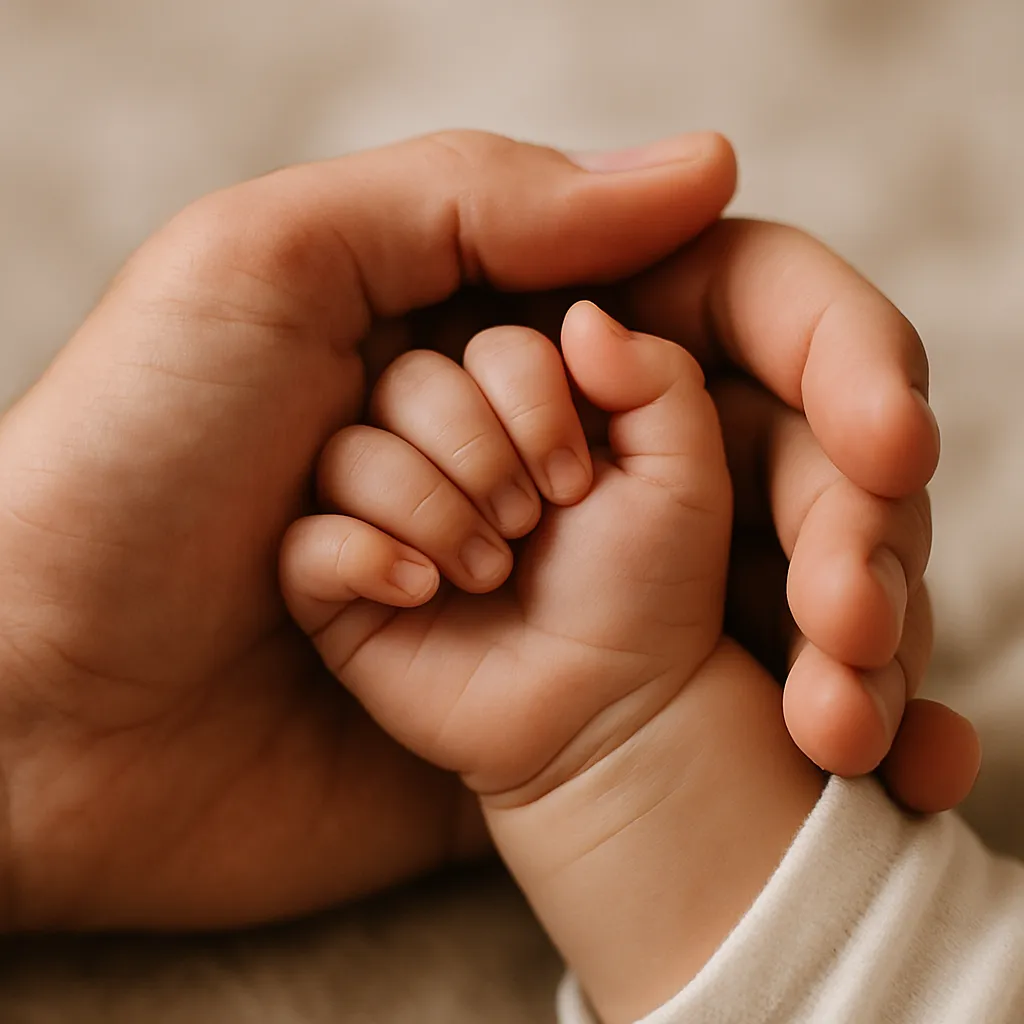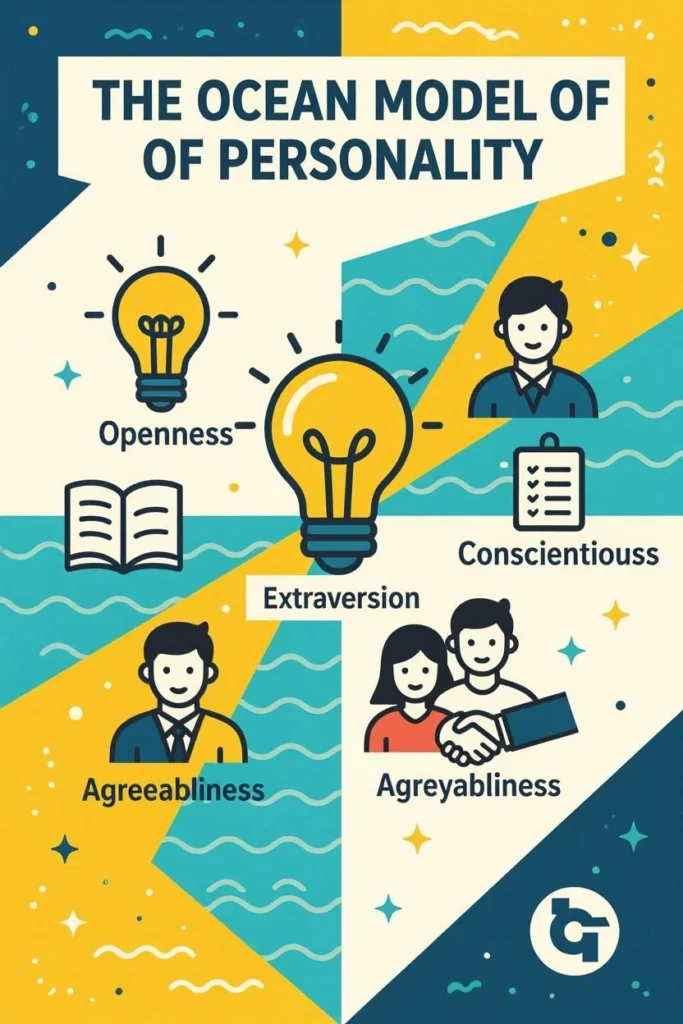
Are you the way you are because you were born that way? Or did your life experiences shape you into the person you are today? This is the classic question of “nature versus nurture,” and it’s one of the most fascinating and fundamental topics in all of psychology.
For years, people have debated which force holds more sway. Are we controlled by our genes? Or are we shaped by our life experiences?
The real answer is more exciting. Your personality is not just one or the other. It’s the result of a complex and constant dance between them.
Understanding this dance is a key to self-awareness. It helps you see which of your habits are natural tendencies and which are learned. This guide will break down the roles of both nature and nurture in a simple, clear way.
Key Theories on How Personality is Formed
The question of how personality is formed has been central to the field of psychology for over a century. Several major theories offer different perspectives, but many agree that our childhood experiences and social relationships play a crucial role early in life.
- Psychoanalytic Theory: Pioneered by Sigmund Freud, this theory of personality suggests that our personality is largely shaped by unconscious drives and conflicts from early childhood. Freud’s stage theory proposed that we move through different psychosexual stages that influence our adult traits.
- Psychosocial Theory: Erik Erikson, another influential theorist, expanded on Freud’s ideas. He proposed that personality doesn’t stop developing in childhood but continues to develop throughout our lifespan through a series of eight social crises.
- Social Cognitive Theory: This perspective, championed by Albert Bandura, emphasizes the role of learning and observation. It suggests that our human behaviors and personality traits are learned by watching and interacting with others, particularly in our social relationships.
Understanding these foundational theories of personality development provides a richer context for your own personal growth journey.
The Role of Nature: Your Genetic Blueprint
“Nature” refers to your genes. It’s the biological foundation you get at birth. Think of it as the raw material used to build your personality. We can see this most clearly in what is called temperament.
Temperament: Your Built-in Starting Point

Even as babies, people are very different. Some are calm, while others are fussy. Some are full of energy, while others are more relaxed. These natural tendencies are called temperaments.
Temperament is your built-in style for feeling and acting. It’s your starting point in life. Researchers often look at three key areas:
Activity Level
This refers to a person’s general level of energy and motion.
- As a baby, a high activity level might look like constant kicking and squirming.
- As a child, this can translate into a love for the playground, sports, and running around.
- As an adult, this person might feel restless in a desk job, thrive on action, and always seem to be “on the go.”
Emotionality
This is the intensity of a person’s emotional reactions.
- As a baby, high emotionality might mean crying loudly at the slightest discomfort.
- As a child, this can look like big reactions to both good and bad news—intense joy and deep sadness.
- As an adult, this person feels their emotions very deeply and may be described as passionate or sensitive.
Sociability
This refers to the general tendency to enjoy being with other people.
- As a baby, high sociability might mean smiling and cooing at strangers.
- As a child, this can translate into having a large group of friends and loving group activities.
- As an adult, this person is likely an extrovert who feels energized by social gatherings.
Your temperament as a child has a strong link to your personality as an adult. It is the initial sketch provided by nature.
Heritability: The Astonishing Story of the Minnesota Twin Study
How do we know for sure that genes play a role? The best proof comes from studies of twins. Scientists compare identical twins (who share 100% of their genes) with fraternal twins (who share about 50%).
The most famous studies looked at identical twins who were separated at birth and raised in different homes. Even though they grew up in different environments, these twins had very similar personalities.
These studies consistently show that for the Big Five personality traits, genes account for about 40-60% of our personality. This means your DNA has a strong influence on traits like how outgoing you are or how you handle stress.
The Role of Nurture: Your Life’s Experiences
“Nurture” is everything that happens to you after you are born. It includes your family, your friends, your culture, and your unique life events. If nature is the blueprint, nurture is the builder who constructs the house.
Key Theories: How Psychology Explains Personality Development
The debate between nature and nurture provides the big picture. Within the field of psychology, several key theories offer a more detailed model of personality formation. Understanding these helps to see how different factors shape our human behaviors.
The Psychoanalytic Theory of Sigmund Freud
Sigmund Freud developed one of the earliest and most famous theories of personality. His psychoanalytic theory emphasized the profound impact of childhood experiences. Freud believed that our core personality is largely shaped by events that happen early in life, often stored in our unconscious mind. While many of his specific ideas have been debated, his core insight—that our past powerfully influences our present—remains a cornerstone of modern psychology and mental health.
The Psychosocial Stages of Erik Erikson
Erik Erikson, another influential theorist, expanded on Freud’s ideas. He proposed a stage theory suggesting that our personality doesn’t stop developing in childhood. Instead, he believed we continue to develop throughout our entire lives through eight psychosocial stages.
According to Erikson’s theory of personality development, each stage presents a unique psychological crisis or challenge. How we navigate these challenges, which are heavily influenced by our social relationships, shapes our overall personality. For example, in adolescence, the crisis is “Identity vs. Role Confusion,” while in middle adulthood, it’s “Generativity vs. Stagnation.”
Early Childhood and Attachment

Your first experiences with your parents or caregivers are very important. They shape how safe you feel in the world. This is known as Attachment Theory.
Secure Attachment
- In childhood: Your caregivers were loving, reliable, and responsive to your needs. You learned that the world is a safe place and that you are worthy of love.
- In adulthood: You likely find it easier to trust others, be close to them, and build healthy, lasting relationships. You are comfortable with intimacy and independence.
Anxious Attachment
- In childhood: Your care was inconsistent. Sometimes your caregivers were loving and present, and other times they were distant or overwhelmed. You learned that you had to be alert to keep them close.
- In adulthood: You might worry a lot about your relationships. You may fear your partner doesn’t truly love you or will leave you. You might need a lot of reassurance to feel secure.
Avoidant Attachment
- In childhood: Your caregivers were often distant, dismissive, or neglectful. You learned that relying on others leads to disappointment and that it’s safer to be self-sufficient.
- In adulthood: You might be highly independent and uncomfortable with emotional intimacy. You may prefer to keep people at a distance and feel suffocated when others get too close.
These early patterns have a big impact on how you form relationships for the rest of your life.
Culture and Social Rules
The culture you grow up in gives you a script for how to act. You learn what is seen as polite, what is valued, and what is expected of you.
- Individualistic cultures (like in the U.S.) value independence and personal success. People from these cultures might be more assertive.
- Collectivist cultures (like in many parts of Asia) value group harmony and loyalty. People from these cultures might be more cooperative.
These social rules are a powerful part of your “nurture.”
Understanding how your personality was formed is the first step. To learn how to actively enhance it, explore our [Ultimate Guide to Personality Development].
Birth Order: Your Place in the Family
A popular theory suggests that your position in the family can also shape your personality. While it’s not a hard science, the patterns can be insightful.
- Firstborns: Often described as reliable and responsible, having been given more duties.
- Middle Children: Often seen as peacemakers and independent, having had to find their own way.
- Youngest Children: Often described as charming and creative, having had to compete for attention.
- Only Children: Often mature for their age, having spent more time around adults.
Major Life Events
Your personality doesn’t stop changing after childhood. It continues to evolve, especially when big things happen in your life. Most of these changes happen between the ages of 20 and 40.
- Positive Events: Things like starting a great career or being in a loving relationship can help you become more responsible and emotionally calm.
- Negative Events: Tough times, like a serious illness or losing a loved one, can also shape you. They can lead to more worry, but they can also make you stronger and more empathetic.
Your life is a constant learning process, and your experiences are always refining who you are.
Understanding how your personality was formed is the first step. To learn how to actively enhance it, explore our Ultimate Guide to Personality Development.
Putting It All Together: Real-World Scenarios
The best way to understand the dance between nature and nurture is to see it in action. Let’s look at two hypothetical scenarios.
Scenario 1: Maria, The Resilient Worrier
Maria’s nature includes a genetic tendency toward higher anxiety. As a child, she was often shy and worried. However, her nurture was very supportive. Her parents encouraged her to try new things, taught her breathing exercises for stress, and never shamed her for her feelings. As an adult, Maria still feels that natural pull of anxiety, but her positive upbringing gave her the tools to manage it. She is a thoughtful and empathetic leader who uses her tendency to worry to anticipate problems before they happen. Her nurture helped her master her nature.
Scenario 2: David, The Cautious Socialite
David’s nature includes a strong tendency toward sociability and extroversion. As a young child, he was outgoing and loved being the center of attention. However, his nurture was very critical. His parents often told him to “be quiet” and discouraged him from being “too loud.” He was often compared to a more reserved older sibling. As an adult, David feels a constant internal conflict. He craves social connection but also has a deep fear of being judged. He can be the life of the party one moment and retreat into social anxiety the next. His nurture taught him to suppress his nature.
These examples show that your genetic blueprint is not your destiny. Your environment plays a powerful role in how your natural tendencies are expressed.
Can Your Personality Actually Change?

This is the big question. The answer is a hopeful and science-backed “yes.”
While your core personality tends to be stable, it is not set in concrete. Psychologists call this ability to change personality plasticity.
You don’t have to wait for life to change you. You can take an active role. You might not be able to turn a deep introvert into a loud extrovert. But an introvert can learn to be a great public speaker. A person who worries a lot can learn mindfulness to become calmer. Through conscious effort and new habits, you can shape your personality over time.
Frequently Asked Questions (FAQ)
Which is more important: nature or nurture?
This is the classic question, but modern science says it’s the wrong one. The answer is that they are both equally important. Research suggests it’s roughly a 50/50 split. It’s better to think of them as partners in a dance rather than opponents in a fight.
At what age does personality stop changing?
Personality becomes more stable as we get older, typically firming up around age 30. The most significant changes happen between the ages of 20 and 40. However, it never completely stops changing. Life events and intentional effort can continue to shape your personality throughout your entire life.
Can I really change my personality if I want to?
Yes, you can. While you may not be able to change your core temperament (e.g., your natural energy level), you can absolutely change your habits, beliefs, and behaviors. This is the entire foundation of personal development. By consistently acting like the person you want to become, you can reshape your personality over time.
You Are Both the Blueprint and the Builder
So, is your personality from your genes or your environment? The answer is a clear and empowering “both.”
Your DNA provides the blueprint. It’s your natural tendencies and your starting points.
Your life’s experiences are the builder. They shape and construct the final structure.
Whether you look at it through the lens of psychological theories or the simple dance of nature and nurture, the conclusion is the same.
This is a powerful idea. It means you are not a prisoner of your genes. You are not defined forever by your past.
You are an active participant in your own creation. Through conscious effort and new experiences, you have the power to shape and refine the person you want to become. You are both the blueprint and the builder.
Which do you think has had a bigger impact on your own personality: nature or nurture? Share your thoughts in the comments!thumb_upthumb_down


